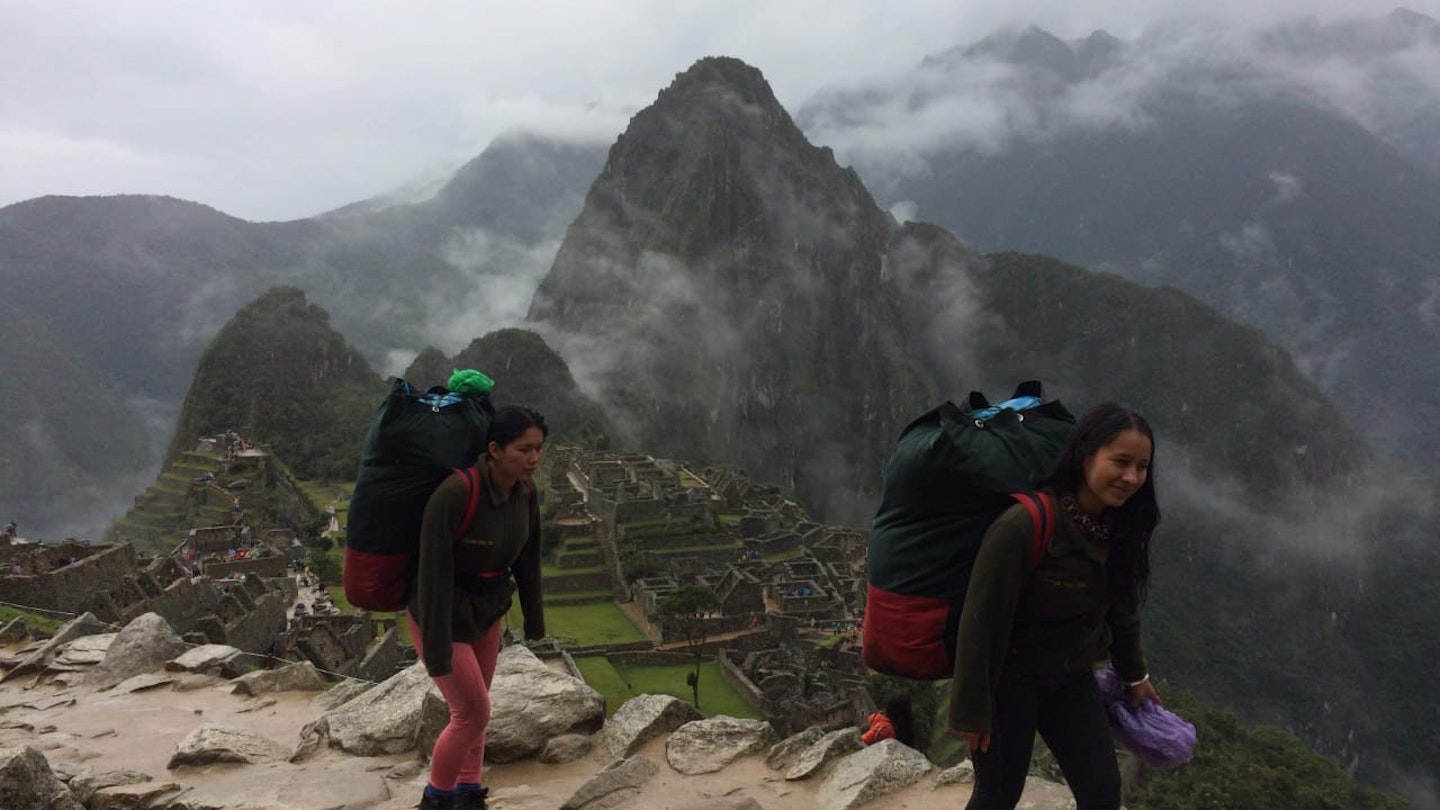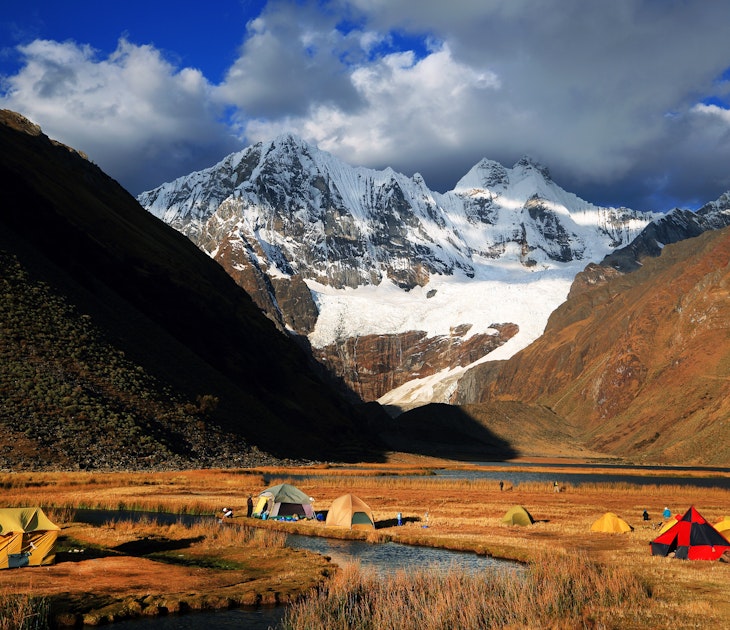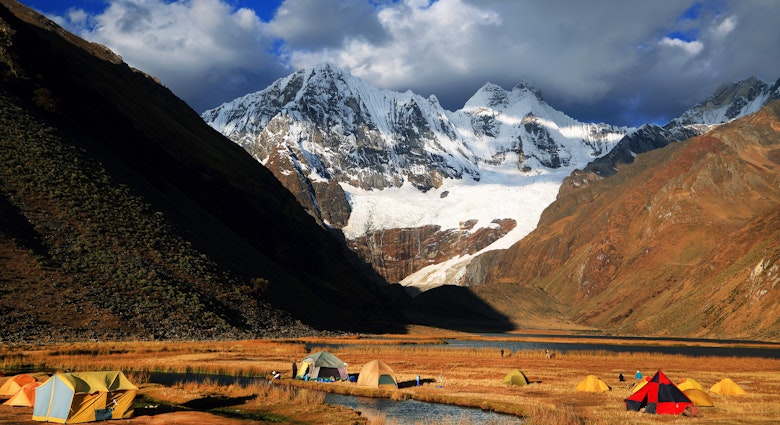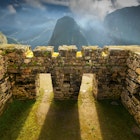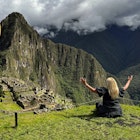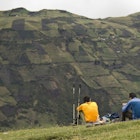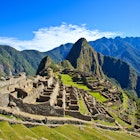For the first time in Machu Picchu trekking, an all-women team of porters and tour leaders will lead an all-women group of clients through the sacred Andes to the awe-inspiring Inca citadel. The trek is planned for March 30, though changing COVID-19 restrictions have altered the route and the plan remains subject to change.
“I’m excited because a pure women’s group means things are changing. We are proving we can do it without men,” says Lucia Merclajuly Vela Sosa, who will be participating in the historic trek as a tour guide. While the trek is designed to break stereotypes, perhaps even more importantly, this all-women initiative also supports women against discrimination and provides an opportunity to earn a fair income.
Responsible trekking in Peru: What you should know about workers' rights for porters
Eight to ten porters and two tour guides—most of them indigenous Quechua women who live in pueblos along the Inca Trail—will carry a 15-kilogram (33-pound) pack of camping and cooking equipment from start to finish. While they originally planned to hike the classic four-day Inca Trail trek, recent government restrictions due to COVID-19 have forced them to alter their route to one of the many other trails in the Historic Sanctuary of Machu Picchu. The Inca Trail remains closed. The women will set up and tear down camp every day and guide their clients along the celebrated trail. And they will be paid the same wage as men—a rate of $87 for a five-day trek plus tips. In Peru, women typically earn $10 a day.
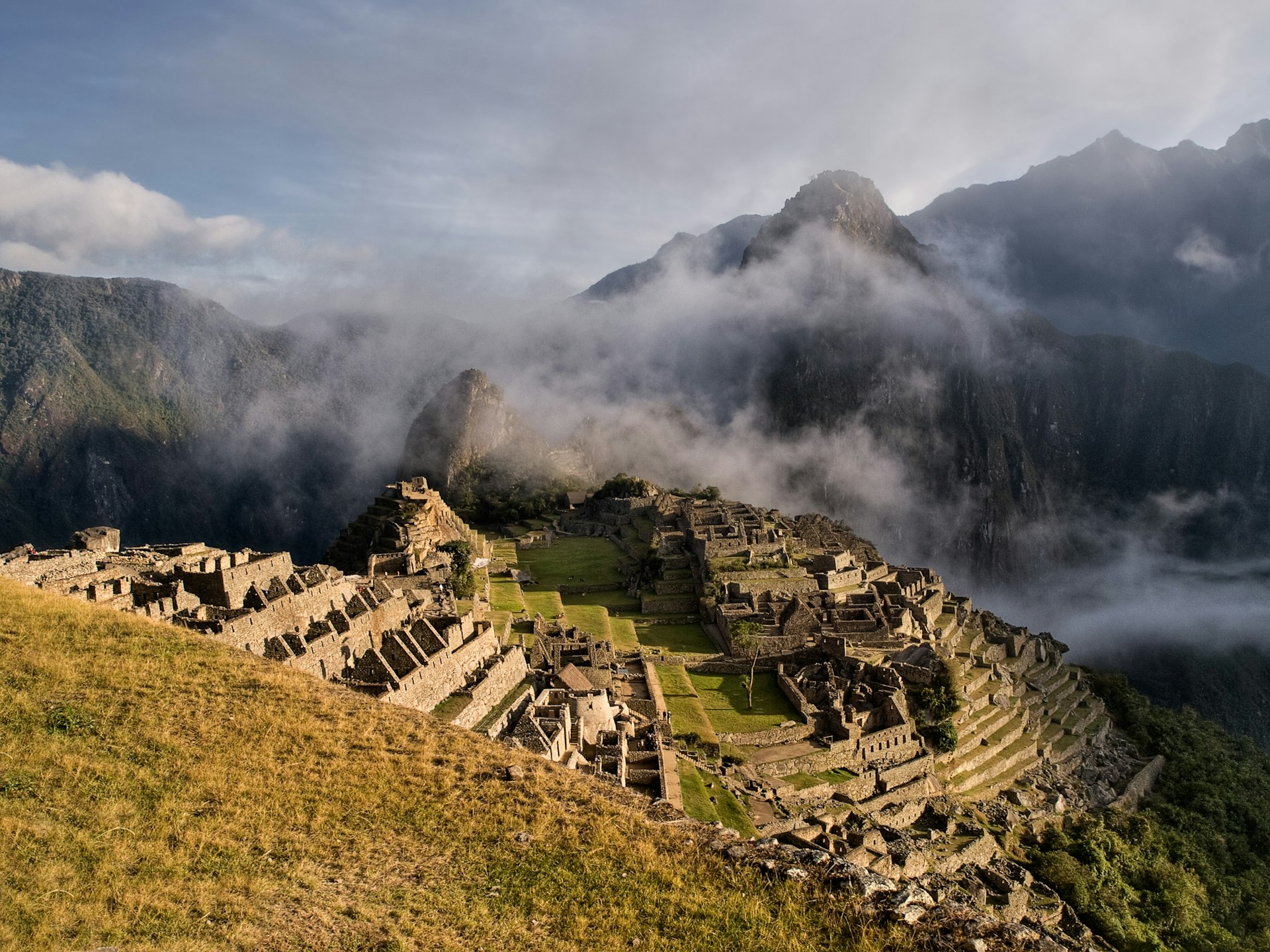
Portering was a job for exclusively men until 2017, when Evolution Treks Peru, followed by other companies, began hiring women porters and tour leaders—though only one or two on a team of up to 20 porters.
“We hope to do this every two weeks in 2021,” says Miguel Angel Góngora Meza, co-founder of Evolution Treks Peru. “And every week or more in 2022. There’s a lot of interest in this". Evolution Treks is committed to ensuring equal opportunities for men and women in the workplace. They have been active in advocating for porters’ rights along the trail, including fair wages and trailside living conditions. But the all-women initiative takes it one giant step further by breaking stereotypes and showing other women what the possibilities are.
Minding Machu Picchu: how to see Peru’s most famous ruins responsibly
“It’s not just about being a porter,” says Sara Qquehuarucho Zamalloa, who will be joining the trek as the second tour guide. Both she and Lucia were the Inca Trail’s first-ever women porters in 2017, and they went on to become professional tour guides after graduating from a tourism school in their native town of Calca in the Sacred Valley. She says the work is empowering. “If I can do the Inca Trail, I can do anything,” she adds.
Editor's note: This article has been updated to reflect a change in route for this trek, which was altered due to COVID-19 restrictions.
You may also like:
Inca Trail essentials
Lonely Planet Q&A with Wild Women Expeditions owner Jennifer Haddow
Why virtual tours are here to stay

